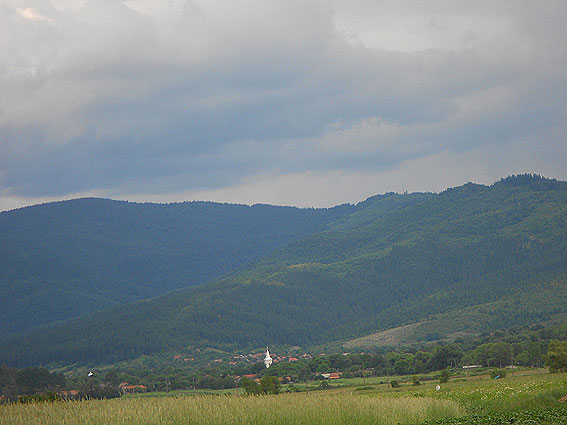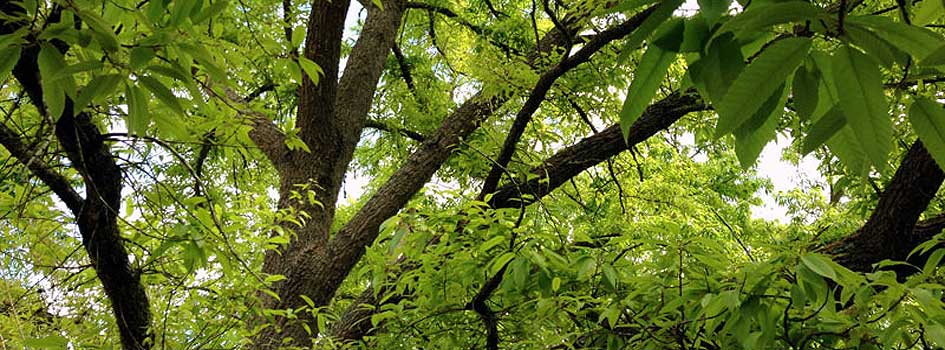Chrissy's Contributions
June 2013: POSTCARD FROM TRANSYLVANIA

The Carpathian Mountains form a back drop to the village of Papolc, home of the Thamo family for centuries
In this forgotten corner of Europe the wave of modernisation that began with the Industrial Revolution in the north west of the continent two centuries ago and has ineluctably spread across the rest ~ altering in its path nearly every aspect of traditional life ~ seems to have scarcely arrived in Transylvania. Certainly half the people on the street are using mobile phones and some families own a small car but these cruise the roads in the company of horses and carts.
Village life is intact here along with system of land management that is essentially medieval. This is a countryside that supports a large rural population without fences, without farms even, certainly without residential sprawl beyond the village itself into the productive fields. Food is produced by nearly everyone, in their yards and in their allocation of strips around the village. Every home has a large vegetable garden, a barn and a cellar. Animals are housed in the barn over winter and their manure is taken by horse cart to the fields in spring where it is stockpiled for spreading by hand before the next winter.
Whilst delicacies do now get bought in, most meals are still based on the meats and sausages, the preserves and the vegies that have been grown by the family, washed down with delicious Palinka distilled in each village from the residents' fruit crops or wild berries from the forest that they must share with the wildlife including the bears that live up in the mountains.
The mountains of the Carpathians form an arc around this land separating it from the flatlands of central Europe. Although only reaching about two thousand meters the mountains are steep and clothed in dense mixed forest of beautiful silver firs, beech, maple, pine and oak. Up here the communal farming of the central plain extends to cooperative village forestry.
That is not to say this is an Arcadian paradise. Poverty is widespread and most houses are shabby. There have been four decades of cruel communism too which have left a legacy of closed factories around the outskirts of the towns as well as ugly concrete apartments in their centres. Perhaps the worst scars are in the minds of the people. Enduring Romanian takeover as a spoil of the First World War, followed by a German then Russian invasion in the Second and finally Ceausescu's appalling tyranny where the State replaced the village systems, many seem to have lost belief in the civic realm.
Mistrust of each other characterises the villagers now, who carefully lock their doors when working in the own yard to deter roaming Gypsies. Rubbish is thrown into the bubbling streams in an apparent misapprehension that plastic bottles can be washed away just the same as the organic flotsam of traditional life. Ironically communism obliterated communal farming and forestry in the name of collectivisation. That is State ownership destroyed community control. Then the more recent restitution of private and cooperative forests has led to a surge in clear-felling. For what is the point of maintaining sustainable long-term forest rotations when there is no assurance that governance itself is sustainable?
Nevertheless community does survive. The hospitality towards visitors from humble kitchens is profound. The communal farming of crops and animals has been reestablished. And every spring, when the snow melts, the gardens, the street verges and the balconies are garlanded with flowers. First come the tulips, followed by beds mixed with roses and cottage annuals, petunias cascading from hanging baskets, and the ubiquitous geranium.
What a difference in the footprint of these poor Szecelys' villages to that of the Thames Valley from where I set out last month. The Transylvanian lifestyle of integrated agriculture and forestry has survived sustainably for centuries. Whilst in the Home Counties of England the old houses are well preserved but are peopled by stock brokers and financiers who commute to the City by train. For these residents the older and more preserved the architecture of a former rural England, the more their house's status. Yet in these mock villages the residents work for multi national companies and dine on air-freighted meat and vegetables. And agriculture only survives in the gaps in that residential landscape thanks to EU subsidies.
Chrissy. June 2013

Postal Address: PO Box 21 Balingup Western Australia 6253
Telephone/Fax: 08 9764 1113
Email: Contact
